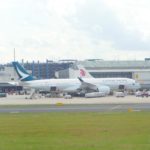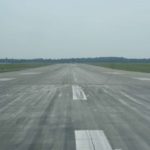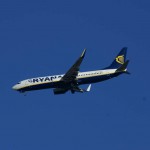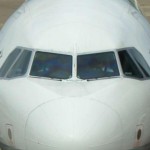Recent improvements to the scheduled maintenance program for the Boeing [NYSE: BA] 777 promise to reduce airlines‘ maintenance costs and increase the time a 777 airplane is in revenue-generating service.
SEATTLE – By increasing the time between certain maintenance tasks, the new program reduces maintenance by more than 400 labor-hours per airplane per year and gives airlines one more day of service annually for each 777 in their fleet.
Using industry averages, the reduced maintenance costs and increased revenue opportunity add more than $100,000 in annual value to each 777 in operation.
The new program extends the maintenance inspection interval for zonal tasks, involving such areas as doors, fuselage compartments, struts, and flight controls, from 25 to 37 months. Under the previous Maintenance Review Board (MRB) report, an airplane was pulled out of service for approximately five days to perform required maintenance checks every 25 months. The addition of 12 months to this maintenance interval provides significant financial and scheduling opportunities to 777 operators.
„This new interval extension gives our customers an industry-leading maintenance program while retaining the same safety and reliability levels inherent in the 777 model,“ said Jack Trunnell, director of Maintenance Engineering in Boeing Commercial Aviation Services. „This extension not only reduces maintenance costs but also provides additional revenue opportunities for airlines.“
Other tasks that have been escalated in the new maintenance program include many general inspections, which have increased from 100 to 125 days. The maintenance program improvements are the result of an eight-month effort by an Industry Steering Committee (ISC) involving 777 airline operators, Boeing and regulatory authorities.
„These task additions are a tribute to the data sharing among operators and fast response by The Boeing Company,“ said ISC Chair Tom Edwards, principal engineer at United Airlines. „Seeing accomplishment intervals increase for a large percentage of the systems, structures and zonal tasks helps each operator eliminate the ’non-value added‘ of doing tasks too early and too often.“
Since August, 777 operators world-wide provided extensive data to Boeing on the 350 tasks analyzed for the interval escalation. The new MRB report was approved by the U.S. Federal Aviation Administration and European Aviation Safety Agency in April, and resulting Maintenance Program Document (MPD) guidelines will be published this month.





